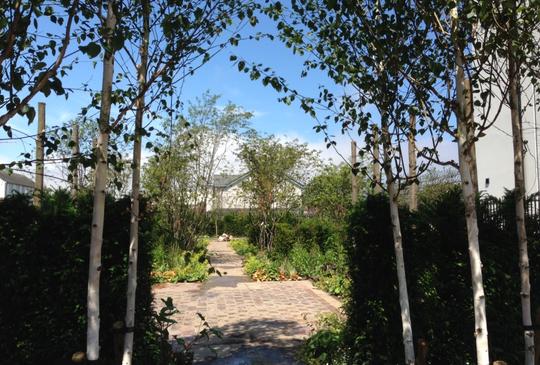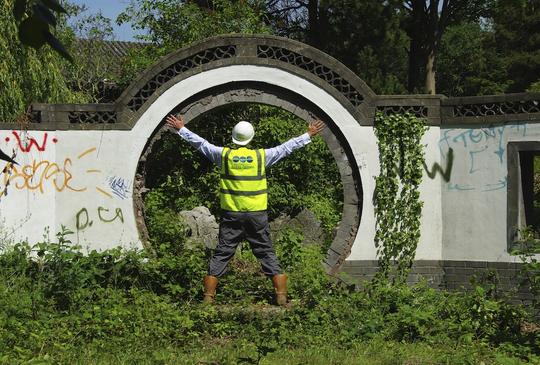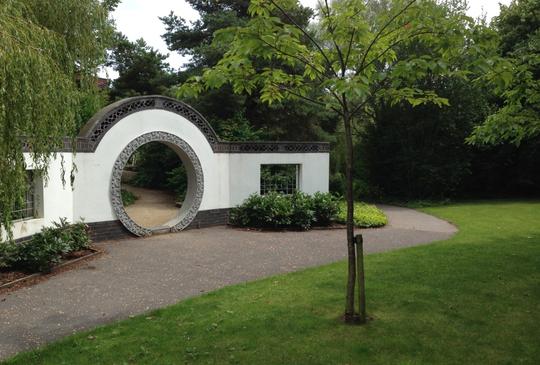
I just can't find my PLACE in this World
In their 2011 book Edgelands, Paul Farley and Michael Symmons Roberts set out to explore the wilderness on our door step – the forgotten spaces and wasted lands in, around and between our major cities.
Theirs is a poetic journey, for “anyone who has spent their childhood mooching around the fringes of English towns and cities, where urban and rural negotiate and renegotiate their borders”. For them, Edgelands “are part of the gravitational field of all of our large urban areas, (from which) to build up speed to escape and hurry towards the countryside beyond, the distant wilderness”.
But what if we can find a more productive use for such areas? What if the Edgelands could be the spaces that entice people to the cities in the first place, a driving economic imperative, rather than a forgotten and abandoned wasteland?
This is of course not a new idea and follows a long trail of land regeneration initiatives, from the Derelict Land Grant regimes of the 1970’s and 80’s; the exemplar creation the Liverpool Garden Festival in 1984; the plethora of Groundwork inspired environmental projects through the 1990’s; to Professor John Handley’s ‘Reclaim the Northwest’; and on to the myriad of strangely named derelict land programmes and Regional Parks initiatives of the early 2000’s.

In preparation for (and whisper this bit) what would have been the comprehensive North West Regional Strategy of 2010, the learning gained from 25 years of such activity culminated in the publication of a major research document ‘Adapting the Landscape’ - a framework intended to guide future environmental programmes and investment, with the overarching objective of increasing the land’s resilience – both in its natural and manmade systems – to climate change.
The ‘Adapting the Landscape’ evidence base has been utilised to inform a renewed effort to underscore the sustainability credentials of the Atlantic Gateway, the positive response to the imperative of rebalancing the UK economy, through a growing collaboration between the northern city regions, with a geography that mirrors the Local Enterprise Areas and Local Nature Partnerships of Greater Manchester, Cheshire and Warrington and Liverpool.
This culminated in June 2014 with the launch of the ‘Atlantic Gateway Parklands - The Landscape for Prosperity’. The Parklands prospectus sets out the Atlantic Gateway Partnership's vision and ambition to make places investment ready and liveable through environmental improvement.
So how will we make this happen? The ‘Landscape for Prosperity’ will be delivered through a series of partner-led initiatives and projects, championed by the Atlantic Gateway Parklands. Building on the narrative of the Farrell Review of Architecture and the Built Environment, we have defined our own Parklands PLACEs – a series of Planned Landscapes and Creative Environments, which will drive forward a collection of strategic interventions, linked to the headline economic projects of the Atlantic Gateway.
The ‘Parklands PLACE’ approach will derive a series of multiple benefits for the economy, the environment and the wider communities, in support of the sustainable development of the Atlantic Gateway.

Our initial focus will be on a small number of Strategic Environmental Initiatives over the coming three to five years, which will enable the Parklands to build a cohesive collection of demonstration projects, which take us beyond the thinking stage and into the ‘doing’ on the ground. Most advance in our current thinking are:
- The Irwell River Park – an 8 km stretch of the Irwell connecting Salford and Manchester City centres with premier public realm and a sustainable continuous transport routeway from Media City to the heart of Manchester;
- Port Salford Greenway – a series of green spaces running parallel to the M60 motorway providing a cycling and walking route from the commercial hub of Port Salford on the Manchester Ship Canal to the Bridgewater Canal at Worsley;
- Great Manchester Wetlands – a broad partnership initiative to support the objectives of the Nature Improvement Area and deliver substantial benefits for biodiversity;
- Mersey Gateway Nature Park – an integrated Green Infrastructure (GI) strategy to unlock the environmental assets areas around the area of the new Mersey Gateway Bridge at Runcorn;
- Bridgewater Way, Daresbury - a programme of regeneration and renewal at the heart of the Enterprise Zone, for public arts, heritage and off-road connections; and,
- GreenPrint for Growth - the ‘Great Park’ approach to using GI to attract investors to North Liverpool and South Sefton and enhance green connections to Liverpool City Centre and the waterfront.
The Parklands initiative will rely heavily on making connections and partnering with others if it is to realise its ambitions. This approach is already paying dividends, with work on the ground at one project within the ‘GreenPrint’ area pushing ahead. In partnership with the luxury fragrance brand Jo Malone London, the Rotunda College in Kirkdale, Liverpool has transformed a derelict space at the back of its buildings into a stunning new community garden designed by BCA Landscapes.
The Atlantic Gateway Parklands has contributed 15% of the capital cost of the project, with other sponsors and volunteer time making up the balance needed to make the project happen. The new ‘Country Garden’ supports the small business and enterprise centre in the adjacent building and adds outdoor eating spaces to the Rotunda café.
The community and businesses working together at Rotunda College show that nature and green spaces will support economic growth if they are embraced as an opportunity. The outstanding quality of the garden’s design and community’s efforts to build it demonstrate what approach championed by the Canadian designer Bruce Mau, during his work on the nearby Everton Park, that we should “use beauty as a competitive advantage”. The project has now featured in both Cheshire Life and British Vogue Magazine – not something the people of Kirkdale have been able to celebrate before!
The Atlantic Gateway Parklands is moving the Edgelands in to the mainstream. It is showing that, as Richard Florida puts it, “a park is not a frivolity” and that our rich and diverse landscapes are essential to economy success. So, whilst Morrissey may still need his Ouija board to find his “place in this world”, anyone travelling between Liverpool and Manchester need look no further than the Atlantic Gateway Parklands – the Landscape for Prosperity.

Main image by Flickr user Radarsmum67, published here under a Creative Commons licence.
Contributor Profile
Richard is an independent regeneration and partnerships practitioner. Born in Liverpool, he trained in Birmingham as a Town Planner. Following a brief exile in Peterborough he returned north to spend a dozen years managing development projects, town centres and the countryside of Salford, followed by a six year stint heading up government funded programmes on Merseyside, championing the cause of deprived communities, even though they thought he just worked for the council.




